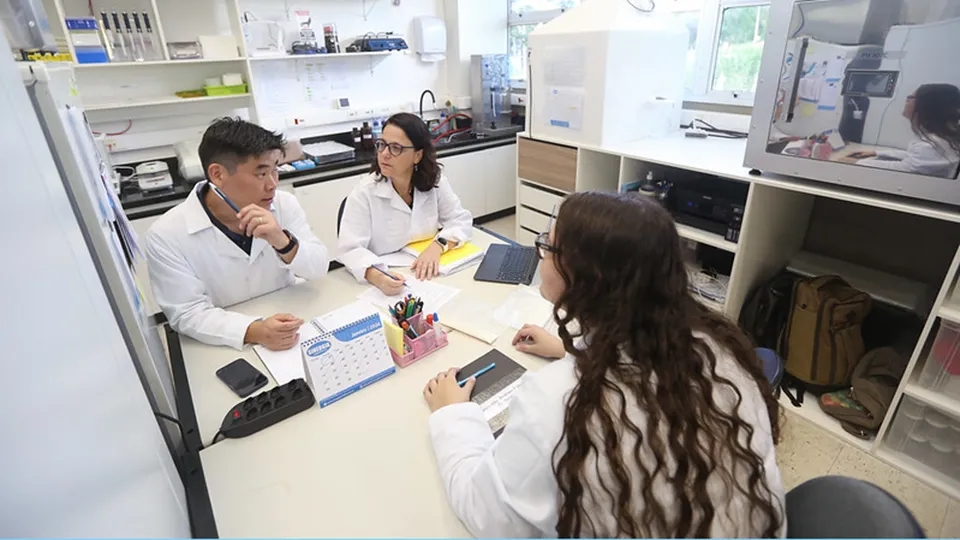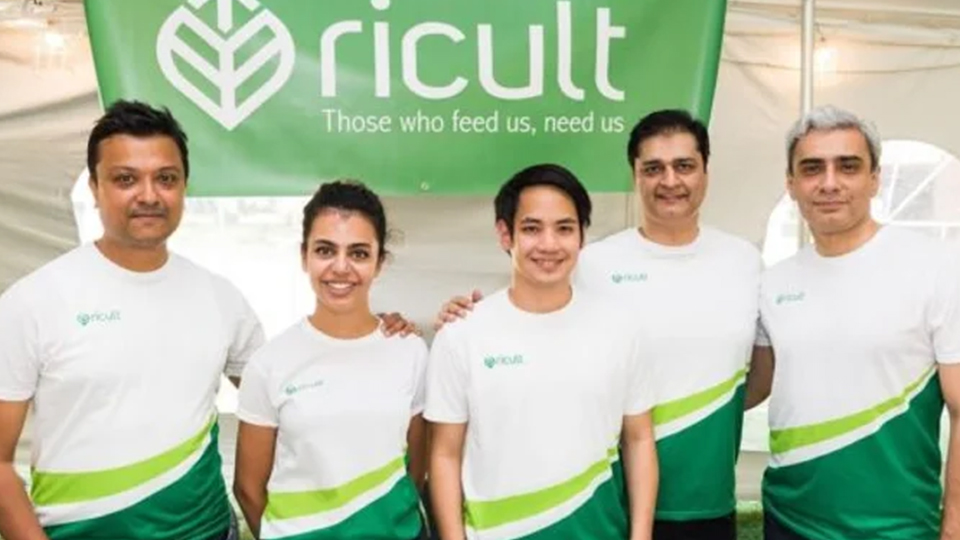Inova Unicamp is the only Technology Innovation Center of the Universidade Estadual de Campinas (Unicamp) in Brazil. 20 years after the creation of Inova, Unicamp has an impressive intellectual property (IP) portfolio, including trademarks, software ownership, and 1,293 active patents and 212 active technology transfer agreements, generating over R$ 1,700,000 in economic gains (as of 2023). Ranking the third public university with the most patent filings in Brazil, Unicamp supports its students and staff by promoting innovation and IP-related education. As a result, over the years, Unicamp’s alumni companies generated a total of over 47,000 formal jobs. Discover the story of the first Brazilian university’s Technological Innovation Center and some of the brilliant innovations it fosters.

Protecting the University IP assets
Unicamp’s history with IP began in 1989, when it filed its first three patent applications with the National Institute of Industrial Property. The University stands out as a regional innovation center due to both its competence to integrate research activities and the business sector, and the volume of business outcomes focused on innovation.

Before Inova was launched, Unicamp had four active patents and had never licensed out a single technology. Since the creation of its Innovation Agency in 2003, Unicamp has built a robust patent portfolio, reaching 1,293 active patents in 2023. In the same year, Unicamp also hit a record with 212 active technology transfer agreements with national and international companies and institutions.
Unicamp's technology transfers aim to ensure fair and appropriate compensation for the university, its partners and researchers, whether financial, social, or academic. In 2023, the active agreements generated R$ 1,720,616.56 in economic gains for the university, including royalties.
Unicamp rose from third to first place in number of patent applications filed among public universities with the National Institute of Industrial Property (INPI) in the state of São Paulo, and it ranked as the third public university with the most patent filings in Brazil in 2023.
Inova: Focus on IP protection
Although Unicamp is the Brazilian University that filed the most patents in Brazil, when adding up the figures of recent years, its focus is now on protecting high-quality technology to ensure licensing and technology transfer. This has resulted in record numbers of agreements signed with companies.
The reason for this massive focus on patent protection is the interest of businesses in partnering with university research centers. Companies and organizations recognize that such partnerships can help them to maintain market leadership or find new ideas and technologies to develop new products without requiring large research and development (R&D) resources.
Due to this surge in the interest in utilizing the research capabilities of universities, Inova deemed it as an essential positioning to secure IP rights for practically all its innovations. This includes vaccines, pharmaceuticals, functional foods, telecommunication systems, information technology, and software, among several others.
Inova’s main IP assets
Inova’s main IP assets are patents, as it files patent applications on behalf of Unicamp. Domestic applications are made with the National Institute of Industrial Property (INPI) and, when appropriate, international applications are filed through the Patent Cooperation Treaty (PCT) system.
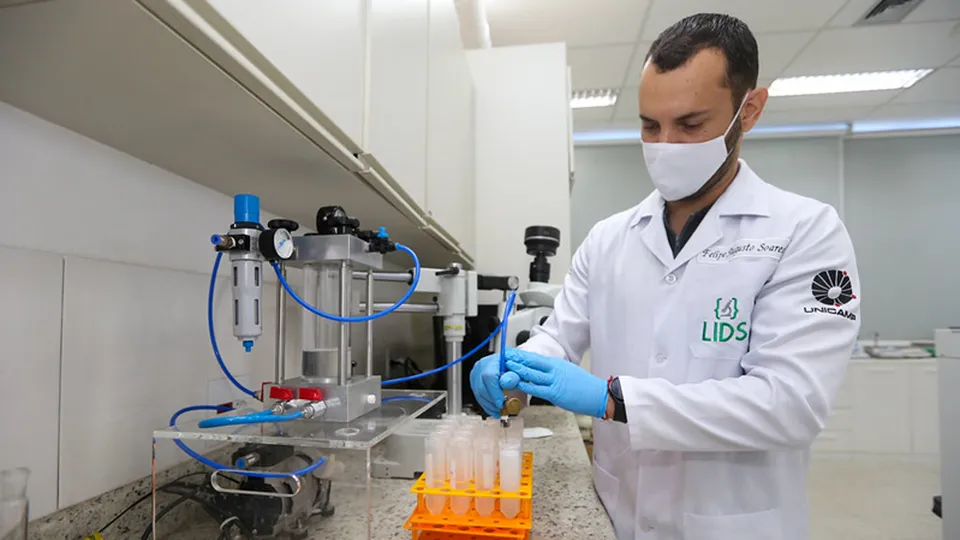
Before Inova, Unicamp had filed only one international patent application. In 2023 and 2024 alone, the university had filed more than 30 international patent applications with the PCT system. In 2023, the university has filed nearly 76 intellectual property assets in INPI, including patent applications and software, a vast majority of which can be attributed to the efforts of Inova.
Inova’s emphasis on protecting the University IP assets does not stop with patents. The Agency also carried out the registers of trademarks, secured authorship for software and promoted its licensees to do the same. In 2023 alone, Inova filed 51 patent applications in the National Institute of Industrial Property (INPI) and secured authorship of 25 software.
Inova’s patents and trademarks cover a wide range of technological fields, with specific focus in Food, Materials, Health, Biotech and the exploitation of natural resources.
Licensing: allowing research to benefit the society
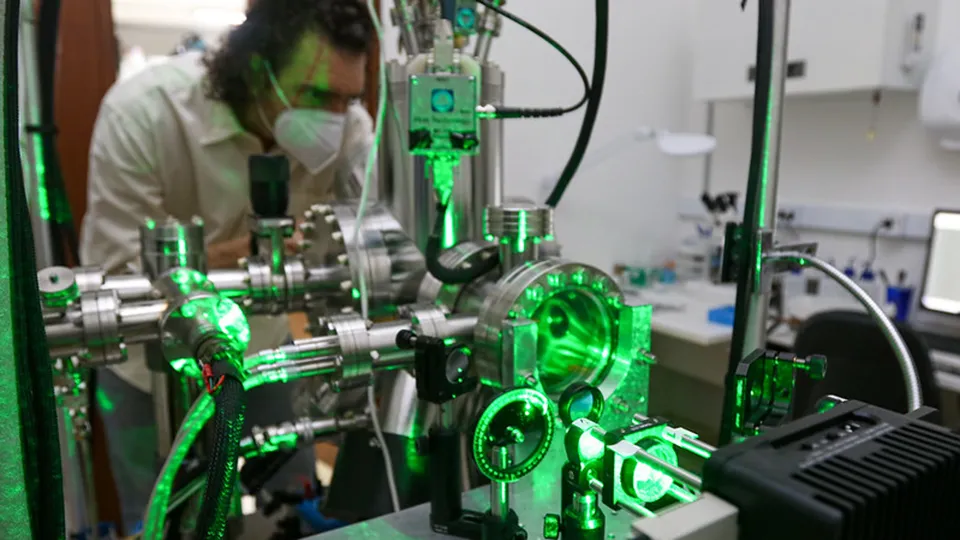
Since Inova began managing Unicamp's intellectual property, several products based on technologies licensed by the University have reached society. Between 2019 and 2023 alone, Unicamp carried out 150 licenses, among which international technology licenses stand out, such as:
- Light detection system for scanning probe microscopes: An innovative microscopy equipment developed at Unicamp's Institute of Physics (IFGW), which gained international recognition by exploring new frontiers in nanoscience. The invention, an accessory attached to a scanning tunneling microscope, stands out for its optimized light-capturing capability. The equipment was launched on the global market by the American company RHK Technology under the brand name PanScan Lumin-SLT.
- Technologies for more accurate diagnosis of neglected diseases: New equipment and innovative techniques that more effectively, precisely, and safely replace traditional parasitological stool tests. The developments resulted from a partnership between Unicamp's Institute of Computing (IC) and School of Medical Sciences (FCM) with a health products company, Immunocamp. These technologies are already being applied in public and private clinical laboratories in Brazil.
- Process for producing healthier fats: The production of the first low-saturated fat for the Brazilian industry, which directly influenced the consumption standards of fats in Brazil, anticipating the requirements of public health agencies. The development came from a partnership between Unicamp's School of Food Engineering (FEA) and the multinational company Cargill, which launched Lévia+e in 2016 and Lévia+c in 2019, fats present in numerous foods distributed throughout the country and Latin America.
Because Unicamp focuses on R&D and licensing out its IP, the university generally does not deal with the commercialization of products. For that, it needs a partner to further develop the technology into a product and put it on the market.

Fostering the culture of innovation and technological entrepreneurship
Inova Unicamp is responsible for promoting communication initiatives that encourage the culture of intellectual property protection, innovation, and entrepreneurship at Unicamp. To achieve this, Inova organizes and supports events, produces specialized content for its communication channels, hosts competitions and awards, offers training and courses, and distributes weekly newsletters, among other initiatives.
One of the main communication and innovation culture programs at Unicamp is the competition called Desafio Unicamp (Unicamp Challenge), a national business modeling competition based on Unicamp’s protected technologies, organized annually by Inova Unicamp. The goal is to foster the creation of startups from the University's protected patents and software programs, providing free entrepreneurship training.
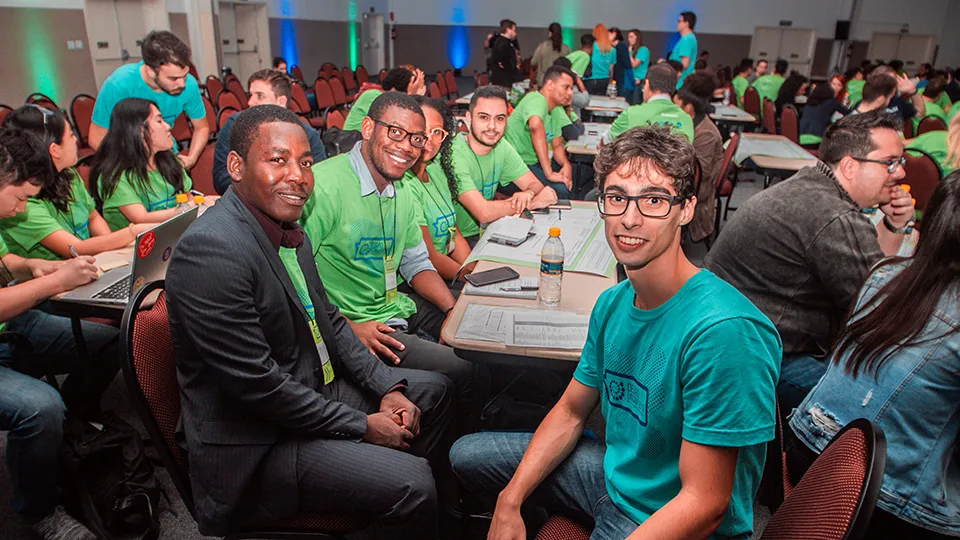
Since its inception in 2011 through 2024, the Desafio Unicamp has trained 3,319 individuals, divided into 809 teams. In addition to teaching methodologies and fostering an entrepreneurial spirit within the community, the competition has generated academic spin-offs or startups that use the University's technologies as their core business.
For example, Rubian Extratos, a startup operating in the health and wellness sector, was founded in 2014 through Desafio Unicamp by a team of former Unicamp students and a business mentor assigned by Inova. The company graduated from Incamp, established new R&D agreements with Unicamp, licensed the University’s technologies, and currently has products on the market such as Metabody, a nutraceutical derived from the Brazilian fruit jabuticaba, designed to treat metabolic disorders.
Another company that emerged from Inova’s competition was B-Nano, operating in the agricultural sector. This startup was formed by the team that won the Desafio Unicamp in the Socio-Environmental Impact category in 2022 and has already licensed the technology used in its business model. The company’s proposal, based on nanotechnology, is to launch a product that controls pests and protects crops from premature degradation, focusing on small and medium-sized producers.
Increasing invention disclosure rates through IP promotion
The Agency has also consolidated a series of communication’s actions aimed at fostering the culture of intellectual property protection, such as mentorships, events on intellectual property topics, and prior art search workshops in patent databases.
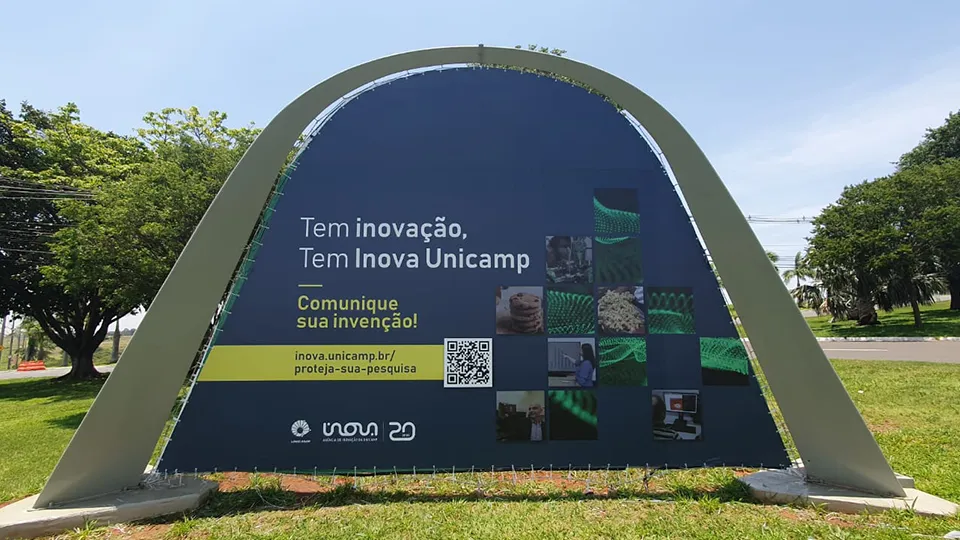
Additionally, Inova Unicamp has published the Guia das Invenções (Invention Guide), which provides clear guidance to researchers on procedures for patent filing, patentability analysis, software registration, plant variety protection, and the internationalization of invention patents. The guide is intended for Unicamp’s faculty, researchers, staff, and students and presents real examples of technologies protected and licensed by the university.
These communication activities increased invention disclosures, demonstrating growing engagement from Unicamp’s internal community. In 2023 alone, 109 invention disclosures were submitted. The IP promotion activities also contributed to a 75% reduction in the number of rejected invention disclosures due to the loss of the grace period and, at the same time, a 17% increase in the number of invention disclosures received when comparing 2022 to 2023. Even though the impacts of the actions to disseminate the culture of Intellectual Property are expected in the long term, it was possible to notice a growing improvement in the quality of the content of the Invention Disclosures submitted by the Unicamp academic community.
Unicamp Science and Technology Park and Technology-based Business Incubator (Incamp)
Managed by Inova Unicamp, the Unicamp Science and Technology Park and Technology-based Business Incubator (Incamp) are conducive environments for fostering innovation by connecting the university's scientific output with the business sector.
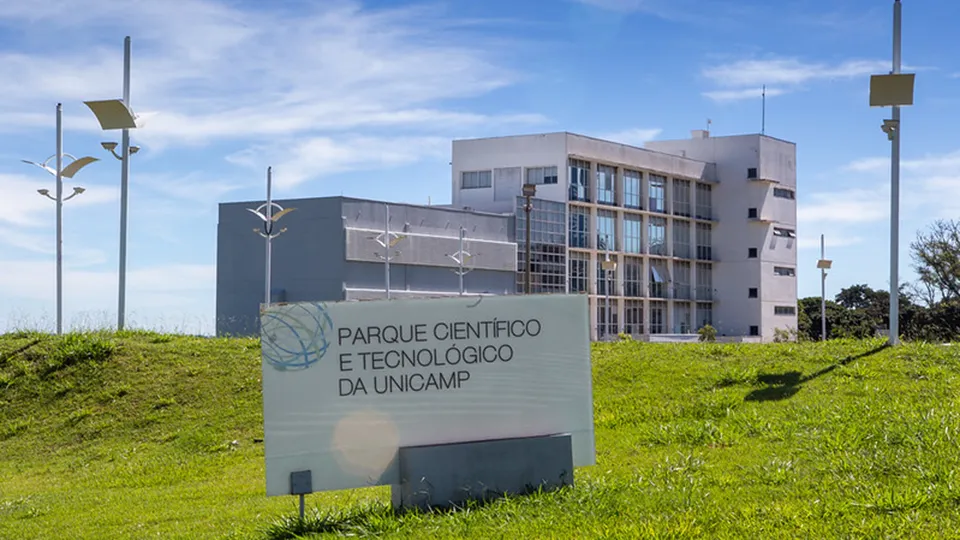
Since 2001, the Technology-based Business Incubator has graduated 63 companies. In 20 years, Incamp has maintained a success rate of 60% of its graduated companies, while Brazil’s average is 25%, after 13 years of company existence. The number is even higher when compared to deeptechs; companies that develop complex technology and rely more on research and development before making a solution available for the market. Graduated deeptech companies at Incamp have a success rate of 77%.
In 2023, the Unicamp Science and Technology Park also became a member of the International Association of Science Parks and Areas of Innovation (IASP), a non-profit organization that coordinates managers of units related to science parks and innovation areas, with consultative status with the United Nations Economic and Social Council.
Unicamp's Alumni Companies
According to the most recent report, Unicamp alumni have created 1,387 companies, of which 1,156 are still active. These companies generated a total of 47,156 formal jobs and had revenues exceeding R$ 25.9 billion in 2023. A portion of this amount, through taxes paid by the companies, returns to the university’s funding system, which is predominantly public.
